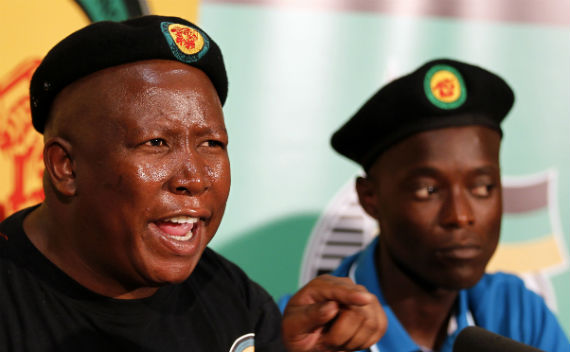South Africa Populist Julius Malema on the Comeback Trail?
More on:

Former African National Congress (ANC) youth leader Julius Malema has been elected to the Limpopo Province Executive Committee. Limpopo, his home province and political base, is more than 97 percent black; whites number only 2.4 percent, and are mostly Afrikaans speakers. Other racial groups -- "Indians" and "Coloureds" -- are negligible in number. Limpopo is also one of the poorest regions of South Africa, especially in the rural areas.
His political ally and current Limpopo premier, Cassel Mathale, was elected as chairman of the provincial ANC.
The South African press is interpreting their victories -- especially that of Malema -- as a slap at ANC party leader and South African president Jacob Zuma. Malema was suspended earlier this year from the ANC for calling for the nationalization of the mines, expropriation of white-owned land without compensation, and the overthrow of the friendly government in adjoining Botswana.
Both face challenges though. Malema is appealing his five-year suspension from the party. If he is not successful, he will not be able to take up the provincial post. Mathale faces allegations of financial mismanagement.
Malema’s struggle with Zuma is more than a matter of personalities. It is also a conflict over different visions of South Africa’s future against the background of persistent economic inequality among racial groups and slow progress in addressing the poverty of the black majority -- the ANC’s core constituency.
More on:
 Online Store
Online Store